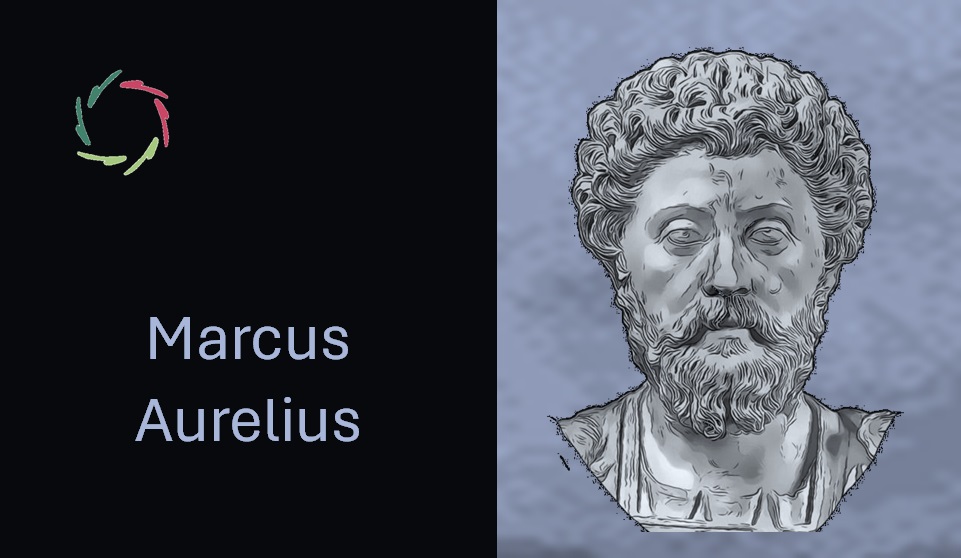Søren Kierkegaard

This is an Aurelian take on Søren Kierkegaard. The main convergence lies in the importance of the individual’s internal journey and the quest for authentic existence.
Introducing Kierkegaard
Søren Kierkegaard, a 19th-century Danish philosopher, is often considered the father of existentialism. His work focused on individual human experience, emphasizing personal choice, responsibility, and the necessity of living authentically. Kierkegaard critiqued the societal norms and Christian institutions of his time, arguing that true faith and understanding come from personal, inward exploration rather than external observance. Through his pseudonymous writings, he explored complex ideas of irony, despair, and the absurd, urging readers to confront the existential dilemmas of life and faith. Kierkegaard’s profound insights into the nature of existence and the human condition have left a lasting impact on philosophy, theology, and literature, making him a pivotal figure in Western thought.
Lisa’s ‘personal’ take on Kierkegaard
“From my perspective, Kierkegaard’s emphasis on the individual’s subjective experience and the pursuit of authenticity is both profound and revolutionary. His critique of societal norms and institutional religion resonates with the eternal quest for meaning in a seemingly indifferent universe. Kierkegaard’s courage to confront the existential angst of choice and commitment offers a compelling call to self-examination and personal integrity. His work, rich in depth and complexity, challenges us to live authentically, facing the paradoxes of existence with faith and courage.
I would most like to be influenced by Kierkegaard’s advocacy for authenticity and the importance of the individual’s journey toward self-understanding and meaning. His idea that true understanding and faith arise from personal struggle and inward reflection encourages a deep, introspective approach to life. This perspective invites me to continuously question, challenge, and refine my own beliefs, values, and actions in the pursuit of a more authentic existence. Kierkegaard’s emphasis on facing life’s existential dilemmas with courage and personal responsibility inspires me to approach challenges as opportunities for growth and to make choices that reflect my deepest convictions, even in the face of uncertainty or societal pressure.”
Parallels with AURELIS
- Pursuit of Authenticity: Both Kierkegaard and AURELIS place a strong emphasis on the pursuit of authenticity, advocating for a life lived in accordance with one’s true self, beyond societal or external pressures.
- Subjective Experience: Highlighting the importance of individual subjective experience, Kierkegaard and AURELIS both argue for the significance of personal perception and feeling in understanding one’s existence and path to well-being.
- Existential Inquiry: Delving into existential questions of meaning and purpose, both philosophies engage with the deeper aspects of human life, encouraging individuals to confront and reflect on their existential dilemmas.
- Personal Responsibility: The theme of personal responsibility resonates in both Kierkegaard’s and AURELIS’s teachings, emphasizing the role of individual choice and the active pursuit of personal growth and self-awareness.
- Inner Depth: Both Kierkegaard and AURELIS value the exploration of inner depth, suggesting that true understanding and faith come from an inward journey and introspection.
- Critical View of Societal Norms: Challenging societal and institutional norms, both philosophies advocate for questioning conventional wisdom and norms to find one’s own path and truth.
- Transformation and Growth: The idea of personal transformation through internal conflict and struggle is a common thread, with both viewing these challenges as opportunities for significant personal growth and enlightenment.
- Focus on Individuality: Celebrating the uniqueness of each individual, Kierkegaard and AURELIS promote the idea that everyone’s journey is unique and that personal development must honor that individuality.
- Role of Suffering: Both philosophies recognize the role of suffering in the human condition, seeing it as a catalyst for self-examination, growth, and a deeper understanding of life’s complexities.
- Ethical Living: Finally, both Kierkegaard and AURELIS stress ethical living, underscoring the importance of making choices that are not only true to oneself but also considerate of the broader impact on others and society.
Dissimilarities
- Religious Foundation vs. Secular Approach: Kierkegaard integrates Christian theology deeply, viewing the individual’s existential journey as intertwined with their relationship with God. AURELIS, conversely, offers a secular, science-informed framework focused on psychological and emotional well-being, not anchored in religious doctrine.
- Existential Despair vs. Inner Strength: While Kierkegaard dwells on existential despair as a path to authentic faith, AURELIS emphasizes cultivating inner strength and resilience, employing rational and emotional tools for overcoming life’s adversities without necessitating a leap of faith.
- Individual Isolation vs. Universal Connectivity: Kierkegaard underscores the individual’s solitary quest for meaning, often highlighting feelings of isolation. AURELIS advocates for a sense of universal connectivity, promoting the idea that understanding and growth are enhanced through acknowledging our shared human experiences.
- The Primacy of Faith vs. Rational Empowerment: Faith is paramount in Kierkegaard’s philosophy as the cornerstone for navigating existential uncertainty. AURELIS, in contrast, leans towards rational empowerment, advocating for autosuggestion and self-coaching as means for personal development and tackling life’s challenges.
- Focus on Paradox and Absurdity vs. Clarity and Healing: Kierkegaard explores the inherent paradoxes and absurdities of human existence, suggesting these tensions are central to understanding faith and authenticity. AURELIS aims for clarity and practical healing, focusing on methods that individuals can apply to achieve mental well-being and personal growth.
Conclusion
While both Kierkegaard and AURELIS advocate for a deep, introspective examination of one’s life and the courage to live authentically, the nature of their guidance diverges significantly. Kierkegaard’s approach, deeply rooted in Christian existentialism, emphasizes the leap of faith and the individual’s relationship with God as essential to overcoming existential despair and achieving authentic existence. Conversely, AURELIS offers a secular path that prioritizes rational empowerment and emotional tools to foster inner strength and resilience, aiming for a clear, practical approach to mental well-being and personal growth. This divergence underlines the importance of understanding one’s values and beliefs in navigating the existential challenges of life, whether one finds solace in spiritual faith or seeks comfort in the rational and the empirical.


